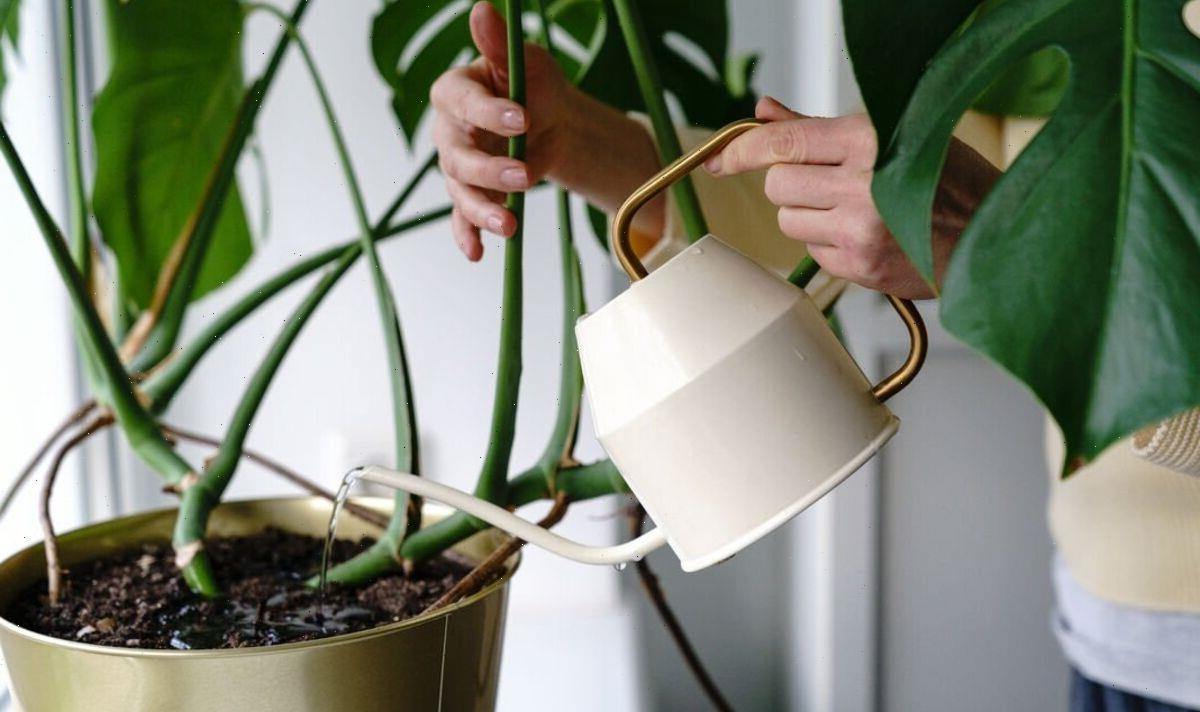Houseplants that are 'impossible to kill'
We use your sign-up to provide content in ways you’ve consented to and to improve our understanding of you. This may include adverts from us and 3rd parties based on our understanding. You can unsubscribe at any time. More info
If you’re struggling to keep your houseplants happy and healthy this winter, it’s likely you’re not alone. Cold temperatures, draughty rooms, less sunlight and central heating can all have a detrimental impact on our indoor plants. If you’re struggling to keep your houseplants alive this winter, Fiona Jenkins, houseplant expert at MyJobQuote.co.uk has shared which six kitchen cupboard essentials that could keep your plants thriving until spring. One of the biggest mistakes people make in the winter months when caring for their houseplants is overwatering.
Some plants go dormant in the winter months so require less water and care overall. Overwatering could cause root rot and other problems with the plant.
Fiona explained further: “Many houseplants can become dormant in winter due to the less than favourable growing conditions. This means they do NOT need as much watering as they do in spring and summer.
“If you continue to water your plants in winter as often as you would in warmer months this can do them more harm than good.
“Instead, there are other hacks you can try to help keep them healthy and strong in the winter months such as using mayonnaise to shine the leaves.”
READ MORE: Eliminate yellow stains from toilet seats with ‘magic’ household item

These are the six cupboard essentials that could save your houseplants this winter:
1. Cinnamon powder
Not only is cinnamon a great flavouring in the kitchen but it also provides huge benefits for our plants.
Cinnamon is a natural fungicide and has both antifungal and antibacterial benefits for plants, which makes it great for repairing broken stems.
When you spot a broken stem, make a clean cut on the stem and sprinkle cinnamon powder on it to stop it from becoming infected.
DON’T MISS
Pruning in winter is ‘essential’ for garden plants to ‘thrive’ [INSIGHT]
David Domoney shares 4 houseplants that act as ‘mould-busters’ [UPDATE]
Best methods to water snake plants to avoid ‘rotting’ plant’s roots [ANALYSIS]
Fiona added: “Mixing cinnamon powder into the soil of your houseplant will also help to prevent mould and fungus.”
2. Mayonnaise
If your houseplant’s leaves are looking a little dull, mayonnaise could be the answer to restoring their natural shine.
Fiona explained: “Take a piece of kitchen roll with a small amount of mayonnaise on it and rub this on the leaves, this should have them shining for weeks.
“However, it’s important not to use too much mayonnaise otherwise it could leave a residue that could clog the leaf pores.”
Looking for a new home, or just fancy a look? Add your postcode below or visit InYourArea
3. Eggshells
Eggshells can be used in outdoor plant pots to deter slugs from feasting on the leaves of your favourite plants.
However, eggshells can also be used to give your houseplants a calcium boost. Fiona explained: “Putting crushed eggshells in the soil of your houseplants is a quick and easy way to provide them with extra calcium.
“Simply crush the eggshells using a food processor or a pestle and mortar until they’re almost a powder.
“If you’re planning to repot your plant then mix the eggshells into the soil as you do this, this will get the best results. However, if not you can still spread the eggshells onto the soil around the plant.”
4. Banana skin
Gardeners can make a homemade fertiliser using banana skin to give their indoor plants an “extra boost” when watering them this winter.
Simply put the banana skin into a jar of water and leave it for 24 hours and then use the water to feed your plants.
The banana skin will give the plants nutrients such as potassium, phosphorus and calcium which will make them stronger as well as deter pests.

5. Unsalted potato water
To save some cash on your water bill, plant owners can use leftover water from boiling potatoes to water their plants.
The water contains potassium, phosphorus and magnesium which all help houseplants thrive. Allow the water to cool before using it to water plants.
Just be careful not to use potato water that has salt in it as this can harm plants and prevent the roots from absorbing water.
6. Tea
Tea leaves are enriched with nitrogen which helps plants to grow, however, as tea can contain tannic acid it should only be used on houseplants that like acidic soil such as spider plants and rubber plants.
To try this hack, brew a pot of tea using two tea bags and leave it overnight to cool down.
Source: Read Full Article
